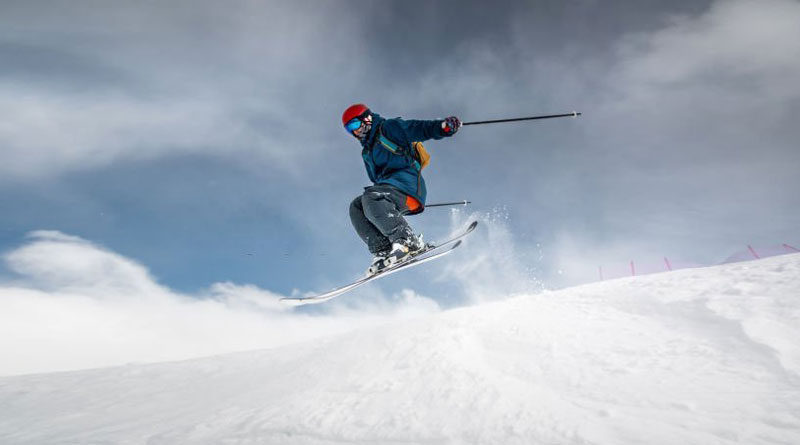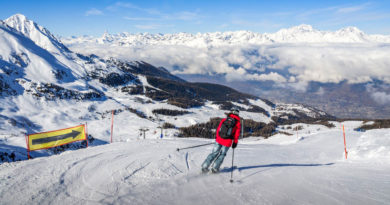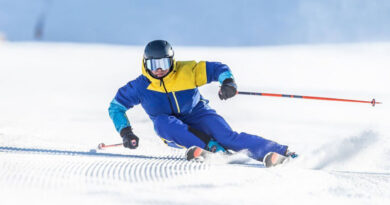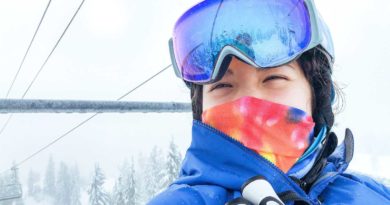Should Your Skis Be Taller Than You?
If you’re a beginner skier buying your first pair of skis, you probably have questions about whether or not they should be taller than you. Do other people also experience this, or is it just you? There are many different ski sizes, so deciding which one is best for you can depend on a variety of factors. Skis come in a range of widths addition to lengths. So selecting the proper skis for a newbie can be difficult. But don’t worry; I’ll show you how long your skis should be in this article. Consequently, to discover more about ski lengths, keep reading.
Ability Level
Skiers who are professionals or experts typically choose skis that are a little longer, or a little taller than themselves. However, it is advised to select skis that are a little bit shorter (by a few centimeters) than the skier’s height for newbies and inexperienced skiers. This is because longer skis are more challenging to ski and control. Conversely, shorter skis are better for beginners since they are simpler to ski, handle, and maneuver. Skiers with advanced skills prefer longer skis because they are more stable and quick at higher speeds. The rule of thumb is to select skis that are tall enough to reach your chin. For a more detailed comparison, learn more about short vs. long skis here and about wide vs. narrow skis here.
Weight
Skis should be longer for heavier skiers and shorter for lightweight skiers. Longer skis provide more stability and control for bigger skiers, whilst shorter skis provide more maneuverability for smaller skiers. Longer skis also provide a larger turning radius, which might be advantageous for heavier skiers who have greater momentum when descending the slopes.
Type of Skiing
The length of your skis will also depend on the type of skiing.
Longer skis, for example, are generally advised for skilled skiers and those skiing at high speeds on groomed slopes, whereas shorter skis are preferable for beginners and those skiing on steeper terrain or in moguls.
In cross-country skiing, longer skis are typically used for touring and longer distances, while shorter skis are used for racing and skiing on groomed tracks.
In freestyle skiing, shorter skis are often used for performing tricks, while longer skis are used for stability and landing large jumps.
In powder skiing, longer skis are generally used for deep powder and for floating on top of the snow, while shorter skis are used for more control and maneuverability.
Learn more about different types of skiing at REI.
It’s important to note that the perfect ski length can also be determined by personal preferences and ability level, so it’s always a good idea to talk with a professional or try out other lengths before making a final selection.
A Good Rule of Thumb
When standing next to your skis, the basic rule of thumb is that your skis should be about chin-to-forehead height. This is a great beginning point. However, the ideal size of skis for you will ultimately depend on your skill level, weight, and type of skiing.
Shorter skis are often suggested for novices since they are simpler to manage and maneuver. As you acquire skill and confidence on the slopes, longer skis with more stability and speed may be an option.
Longer skis can be useful for advanced skiers since they provide more stability at high speeds and in deep powder. Longer skis, on the other hand, might be more difficult to manage and maneuver, so choose a length that is appropriate for your skill level and the sort of skiing you’ll be doing.
It’s also worth noting that the width of the skis is important. Skis that are too wide for your weight, ability level, and type of skiing can also make control and maneuvering difficult.
To decide the right length of skis for you, always speak with a ski professional or a ski rental store. They will propose the optimum length of skis for you based on your weight, experience level, and the type of skiing you will be undertaking.
Conclusion
So in conclusion, the length of your skis depends on a lot of factors like your ability level, your weight, terrain, etc. However, as a good rule of thumb, beginner skiers should always go for a little shorter skis because they are easy to control and maneuver. Expert skiers, on the other hand, can you choose either short or long skis. The long skis will be beneficial if they want to ski fast. Additionally, longer skis are better for skiing faster on well-groomed terrains while shorter skis are simpler to manage and maneuver for newbies.




